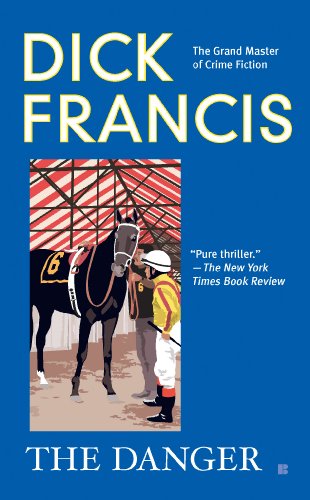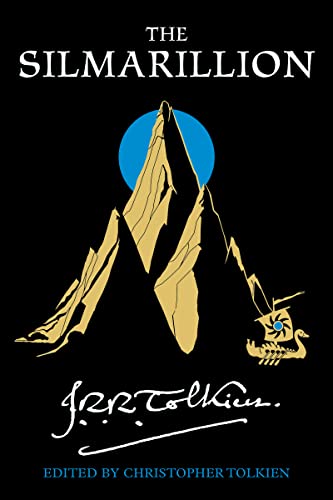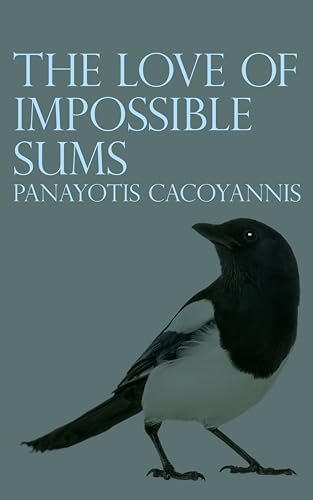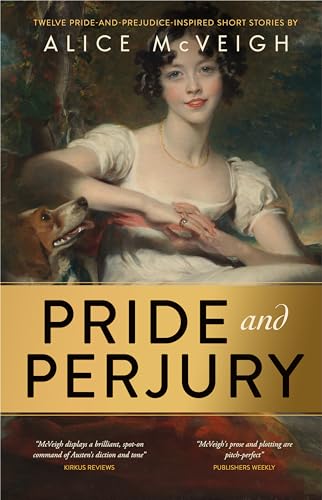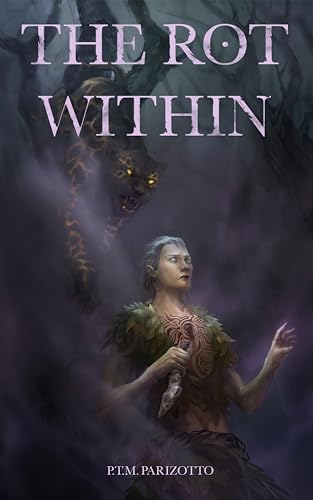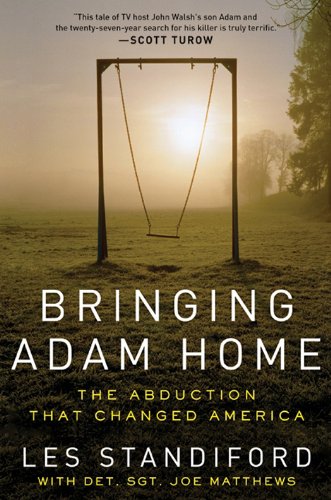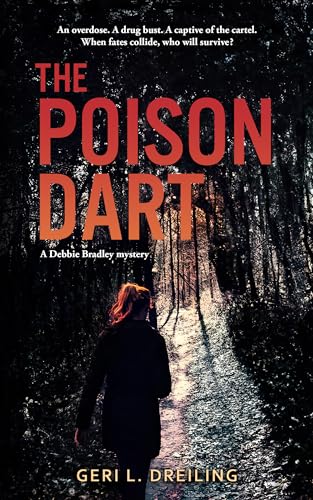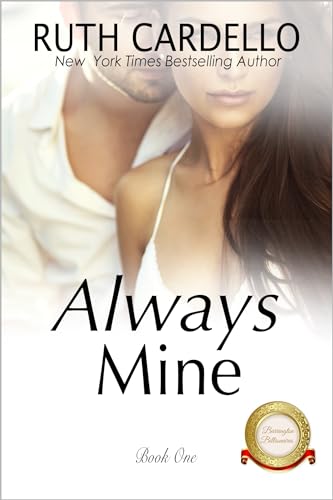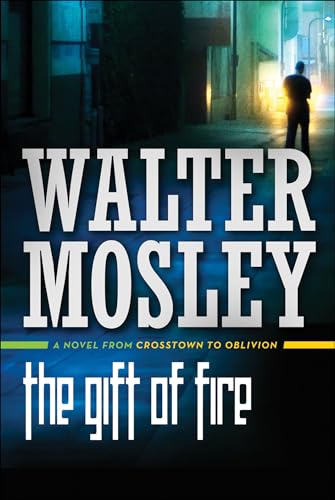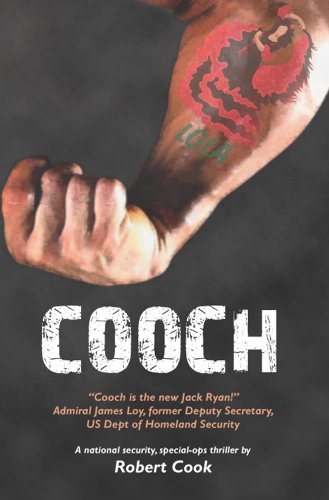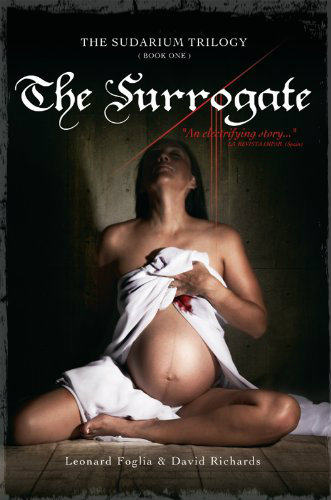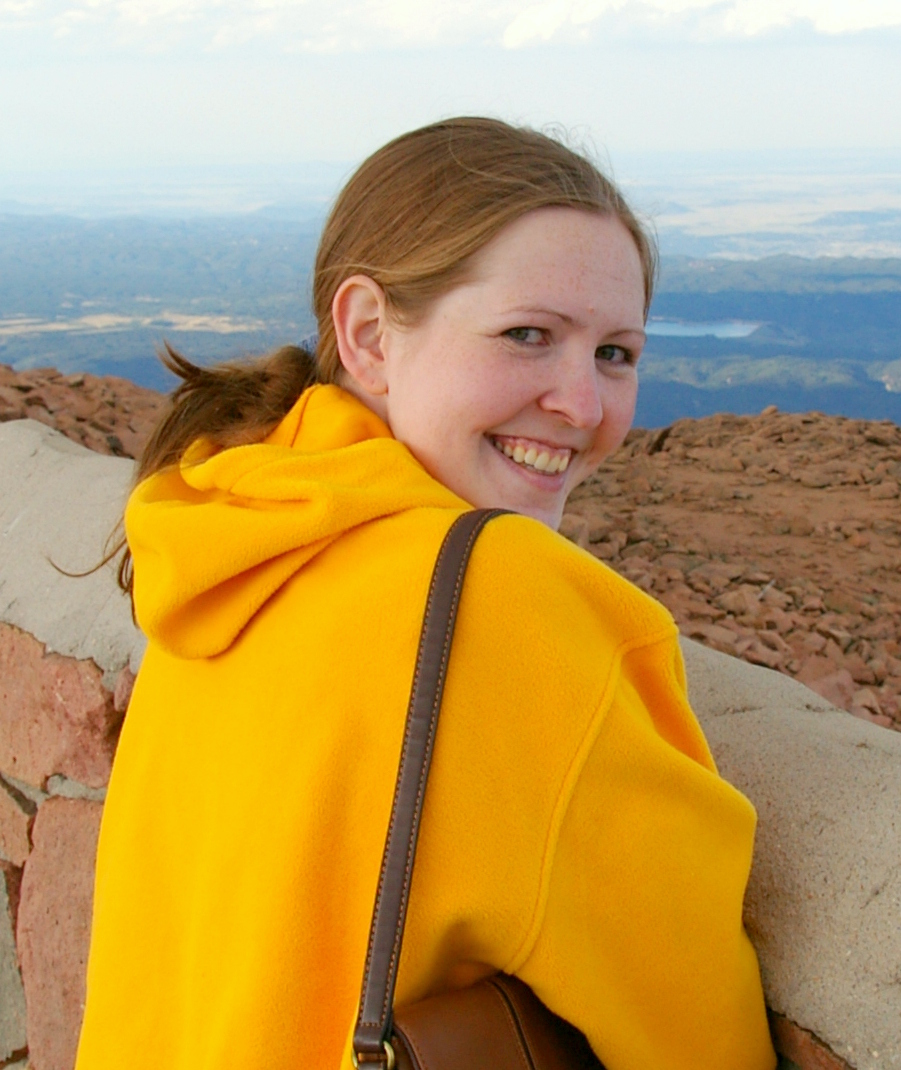Last week we announced that Kiss Me in Paris is our Romance of the Week and the sponsor of thousands of great bargains in the Romance category: over 200 free titles, over 600 quality 99-centers, and thousands more that you can read for free through the Kindle Lending Library if you have Amazon Prime!
Now we’re back to offer our weekly free Romance excerpt, and if you aren’t among those who have downloaded Kiss Me in Paris, you’re in for a real treat:
by Karpov Kinrade, Kimberly Kinrade, Dmytry Karpov
4.6 stars – 71 Reviews
Text-to-Speech and Lending: Enabled
Here’s the set-up:
No one knows my secret. Ever since high school, ever since I started living in fear, no one has known the true me. But then I met him, and I couldn’t hide anymore.
He became my hero, saving me from the villain of my past. He became my friend, his smile a blanket of warmth. And he scared me. Because he, this beautiful man, he might become more. Then he’d see the real me, and I couldn’t let that happen.
My name is Winter, and what I desire most I can’t have.
Flashes of the night I was drugged rush back to me. His strong arms carrying me through the streets of Paris. The feel of his heart beating as my head rested against his chest. The soft press of his lips against my forehead when he thought I was asleep.
Oh shit. I’m falling for the cowboy. Cade.
But we can’t be anything more. He has his own secrets. His own darkness he keeps hidden, like the letter he keeps with him everywhere he goes.
The letter he refuses to open.
* * *

* * *
And here, for your reading pleasure, is our free excerpt:
LESLIE STICKS HER head out of the pickup truck, and her long hair catches the wind, flying out behind her like a blond wave. “Yeehaw!”
She hollers like a cowboy in an old western, and I wonder yet again what I’m doing on this date.
Ducking her head back into the truck, Leslie stretches across the seat, placing her head in my lap. “Cade, I’m bored. Let’s do something fun. How about the lake? Some skinny dippin’?” She traces her finger up my thigh, her touch light through the denim of my jeans. “Maybe distract you from whatever has you lookin’ so serious?”
Ah yes, that’s why I’m on this date. It’s supposed to be a distraction, but nothing seems to pull me from my own melancholy thoughts, not even a beautiful, if somewhat vacuous, girl.
“Sure, we can do that. I just have to go home and feed my brother first.” I turn right on the dirt road, dust catching on the tires. We’re already on my family’s property, horses and cows grazing in wide fields, the Texas sun baking the land with all the heat of the mid-afternoon summer day, but we still have a ways to go to reach the ranch house.
“I didn’t know you have a baby brother. But can’t someone else do that? Like your mom or something?”
“I promised to do it today. It shouldn’t take long.” I pull up to my house, a sprawling ranch-style home with strong horizontal lines, low walls and wide front and rear porches. The roof is galvanized metal, and limestone in the walls gives it a rugged look.
“Nice house, though I expected something bigger given the Savage name and reputation,” Leslie says. “Like, one of those Beverly Hills mansions you see on television.”
“My dad doesn’t like to flaunt our wealth. He thinks we should live modestly, not extravagantly.” Still, there’s an elegant simplicity to the architecture of our home that I admire. It’s not flashy, but it’s high quality and well-designed using local natural resources.
The heat, a living thing you can almost see, beats down on us as we walk to the front door. Trickles of sweat leak down Leslie’s long neck, strands of her hair sticking to her body.
Cold air assaults us as we enter the house, attacking the heat and chilling our skin. Leslie shivers in her tank top and cut off jean shorts. I take off my Stetson, a rule my mother enforces religiously, and place it on the hat rack by the door. With a callused hand I push my hair out of my face and lead the way to the family room where the television fills the house with sounds of cartoons. Next to the couch, slumped in his wheel chair, sits a 16-year-old boy with the mind of a 2-year-old.
I pat his hand and smile. “Hey, Stevie, how’s it going today?”
My brother’s eyes follow me, half his mouth curving into the semblance of a smile as he croaks out a noise that I recognize as his greeting for me. His eyes shift to Leslie, and she shuffles from one foot to the other while twirling a piece of her hair and avoiding eye contact.
“Stevie, this is Leslie, my friend. Leslie, this is my brother, Stevie.”
She looks up, smiles a fraction, and looks back down again. “Nice to meet ya.”
Stevie grunts again and Leslie jerks, as if startled. I shouldn’t have brought her here, shouldn’t even be with her right now.
A big black woman walks into the living room from the kitchen and stops, fists on her ample hips as she eyes me. “Cade Savage, you know you shouldn’t be bringing nobody here. Your daddy don’t like nobody seeing him.”
“Martha, we’re not hurting him,” I say. “I’m on a date, but I promised Stevie I’d have lunch with him today. What’s it going to hurt?”
She sighs, but I know she’ll give in. She always does. “Fine. Whatever. Just don’t be crying to me when your daddy gets in his temper, ya hear?”
“I hear.” I lean in to kiss her on the cheek. “You’re a peach, Martha.”
She swats me away. “You charmer, you know that don’t work on me.” But she smiles as she leaves the room.
“How’s he doing today?” I follow her into the kitchen to prepare Stevie’s lunch.
Leslie scrambles after me, clinging to my hand as if something might attack her at any moment.
I extricate myself from her grip and assemble my brother’s lunch and supplements.
“He be doing okay, same as always,” Martha says. “He misses you, though. Don’t know how he’s going to react when you’re not around anymore.” Her tone is kind, but her words still sting.
I grab Stevie’s meal and join him in the living room, moving his chair to face me as I feed him. It’s a messy process. More food smears his face and falls on to the napkin around his neck than actually gets into his mouth, but I persist until he’s eaten most of it.
With a wet cloth, I wipe his face clean, taking care to get it all without pressing too hard. “How’s that? You feel good?”
He nods his head a fraction, eyes speaking more than his body can. I might be imagining it, but for an instant, I think I see a spark of something in his eyes, the boy he was before.
I ruffle his brown hair, the same color as mine, and take his dish into the kitchen to wash.
Martha snatches it from my hand. “I’ll finish up.”
“You’re not the maid, you know. I can wash it myself.”
She scoffs at me. “Hush now, boy. I may be Stevie’s nurse, but you don’t think that involves washing a dish now and again? Now you get on with your date. That girl in there don’t look like she can handle much more of this.”
“It’s my fault. I didn’t tell her about Stevie before we came.”
She pats my cheek and I head out, calling goodbye to my brother as we leave, my heart heavy each time I think about all the ways my family has changed, all the things we’ve lost in the last few years.
“I’m sorry about your brother,” Leslie says, startling me from my thoughts. “What happened to him?”
“An accident. But I don’t want to talk about him. Let’s go have some fun.” I don’t feel the words I’m saying, but I’m hoping the whole ‘fake it ’til you make it’ philosophy applies to moments like these.
Leslie turns up the radio, flipping through modern rock, Christian and classical until she lands on a country music station, and starts singing along.
The sun sets, casting long shadows over the hot land, lighting up the sky with oranges and pinks and yellows.
Setting suns always seem sad, beautiful but tragic in their way. It’s another goodbye, a farewell to a day that can never be relived, never be recaptured. It’s gone forever, lost in imperfect memories of what might have been.
Stars burn bright in the sky, the full moon reflected in the lake as Leslie splashes through moonbeams while chattering about her summer plans. Her words dissolve around me as I gaze at the sky, body resting against a small patch of grass near the lake.
I don’t notice when she stops talking, but it’s impossible not to notice when she walks out of the lake, nude body dripping with water, long wet hair falling down her back. My body reacts as any man would, but my mind is still distracted by the future—and the past.
She dries herself off, throws the towel on the ground next to me and lays down, her long leg draping over mine as she presses her breasts against me. “You’re overdressed for this event.” She pulls up my cotton t-shirt and slides her cool hand under it, then leans in to kiss me. Her mouth tastes like lake water and bubblegum. I respond as expected, kissing her back, but she pulls away. “What’s up? You don’t seem into this at all.”
“Nothing. I’m fine.” I reach for her, initiating another kiss, which is preferable to talking, but she slips out of my hands.
“I can tell there’s something. Is it your brother?”
Ignoring her question, I pose one of my own. “Do you ever wish you could just do what you want?”
“Don’t you do what you want?” she asks. “I mean, you’re Cade Savage. Millionaire.”
“My dad’s the millionaire. I don’t get my inheritance for another five years.”
She rolls her eyes. “You know what I mean. You can have anything.” With a slender finger, she twirls a piece of my hair. “And anyone.”
My lips curl up in a smirk. It figures that everyone thinks my life is perfect, why wouldn’t they? They only see the whitewashed facade that is my life, not the stench of death that lives in my home, corrupting everything and everyone. “Hypothetically, if you had what I have, the money, the car, the great family with the family business…. Everything. Would you give it all up for something you really wanted to do?”
She frowns, her full lips turning down into a pout. “Would I lose all the money?”
“In this hypothetical situation, yes.”
“Depends. What do I want to do?”
My mind spins, landing on the center of my childhood fantasies. “Something you’ve dreamed about doing your whole life.”
“Like being a Disney Princess?”
I shrug. “Sure.”
“But that’s impossible.”
My eyes wander back to her, leaving the stars in the sky to their own dreams. “But if it wasn’t? If you could really be a Disney Princess?”
“If it wasn’t, then… ” She thinks about it and smiles. “I’d be a Princess.”
“You wouldn’t miss all that money? How about your family?”
“Oh, I’d miss them all right, but I’d be happy. Truly happy.” She flops onto her back, staring up at the sky, perhaps dreaming of being a princess. “How many people can say that?”
I nod, smiling. “Not many.”
“Not many.” She takes a sip of the wine cooler by her side. “Besides, as a Princess I’d better have some fucking money.”
I chuckle and lay back down, staring back up at the stars.
One star breaks off from the others, shooting across the sky, a bright light trailing behind it, and I finally understand why people wish on dying stars.
Because something always has to die for life to give birth to a new dream.
Like sweet tea, watermelon and hayrides, Sunday morning church is a staple in Texas. Sitting in our family pew, eyes glazed over as I stare at the Bible and hymnal stuck into the back of the pew in front of me, Pastor Mackay finishes his sermon on the importance of family.
“Gawd,” he says God like there’s an ‘aw’ in there, “wants to share His love with us through our families, through you. If we really want to experience the love of Gawd, and if we want those we love to experience it, we will love each other the way Gawd, through Christ, loves us. Selflessly, sacrificially, and devoutly. Families give us strength to stand up against Satan and his temptations. We must embrace family, stay strong together, and fight against the darkness that so often prevails in our world. Let us pray.”
The closing prayer seems to drone on for hours, as the pastor stretches his final moments to reach us with his words. When he finally closes with an “Amen,” we stand and sing a hymn and then file out of our pews to greet each other, talk about the week, the weather, the kids, the next social event—business as usual.
Pastor Mackay clasps my hands as we leave. “Best of luck to you, Cade. We’re all mighty proud of you.”
I nod and duck out, resigned to wait in the dry heat for my parents to finish socializing. It’s a long-standing tradition that we drive to church together each week. My mom thinks this will bind us to each other in some spiritual way, allowing us to overcome our differences. So far it hasn’t worked.
While I wait, I study the architecture of the church. The Gothic-styled windows never get old, neither do the bright paintings that cover almost every surface. They transport me back to the 19th century, and I imagine a simple life of tending cattle, of coming home to a warm meal and loving family.
The building is the only reason I still agree to attend church with my family each week. That and we have enough strife amongst us; I’m loath to add more.
On the drive home my dad breaks the awkward silence by talking about the sermon. “Family gives strength,” he says, quoting the pastor. “I like that. I really like that.” He turns to Mom. “What do you think, dear?”
She pats his hand. “I thought it was good. Families should support each other.”
“Right, but they have to be together to do that,” he says. “That’s the other part I liked. Families must stay together, must hold each other close. That’s an important part. I don’t think a lot of people think about that.”
My mom pulls back her hand, fussing with her purse. “I think it was more metaphorical, dear.”
“What was metaphorical about that?” He slaps the steering wheel. “Family gives strength. Family has to stay together. Nothing metaphorical about that.”
Mom just shakes her head.
I shift in the backseat, stretching my long legs to the side to keep them from cramping, my Stetson boots pressing up against the other door. “If family gives one strength, shouldn’t family help each other achieve one’s goals?”
Dad nods. “Absolutely. Family goals.”
I clench and unclench my fist. “I don’t remember the pastor saying that.”
“Strength means working together on things, achieving things together. That’s how we keep Satan out of our lives.”
My lips curl up. “Guess it was metaphorical after all.”
Dad grunts. “There’s nothing metaphorical about the commands God has given us in regards to our family. For example, Colossians 3:20 says ‘Children, obey your parents in everything, for this pleases the Lord.’ Ephesians 6:1 says the same thing, and goes further, saying to ‘Honor your father and mother that it may go well with you and that you may live long in the land.’ God knew what he was doing, putting parents at the head of the family. Putting fathers at the head of the family.”
“I think you’re forgetting the rest of that verse, Dad. ‘Fathers, do not provoke your children to anger.’ You might want to work on that one.”
Ignoring me, he continues. “Proverbs 1:8 commands sons to ‘Hear your father’s instruction, and forsake not your mother’s teaching.’ God clearly wants children to obey their parents, to follow in their steps, to honor their will.”
Dad pulls up to our house, and I’m ready to jump out the moment he puts the brakes on. “This is all well and good,” I say, “and we could do this all day. But there’s one thing you’re forgetting, Dad.”
He turns to look at me, his face hard and uncompromising. “What’s that?”
“I’m not a child anymore. I’m a man. And the Bible is also pretty clear that a man shall leave his father and his mother, and be joined to his wife; and they shall become one flesh. That families are for raising children to send them out into the world.”
His eyes narrow, lines forming around them. “As long as you live in my house, and rely on my money to support you, you will follow my rules.”
“In five years, I’ll have my inheritance from Grandpa, whether you like it or not.”
“And what are you going to do for those five years?”
I sigh, pulling my hat lower to cover my scowl. “Does it matter? Is it worth it to you, Dad? Breaking our relationship?”
He unbuckles. “We’re family. Our relationships don’t get broken.”
“Really? Let’s count the successful relationships you’ve had with your children.” I hold up two fists. “Look at that, 0 for 3, Dad, 0 for 3.” I pull myself out of the car and slam the door before he can reply. Anger sets my heart pounding, my fists desperate to punch something. As my family settles into the house, I saddle Biscuit, my horse, and let out my aggression as we race through the fields, leaping over fences until we’re clear to run free.
We use our formal dining room on Sundays, as if God cares where we eat dinner.
My mom brings out the salad and sweet tea, and my dad serves up the barbecued ribs and corn on the cob. Stevie is wheeled up to his customary spot at the table, though he does little but stare at us as we eat in awkward silence.
“Son, please say grace before we begin,” my father commands.
I pull my cloth napkin off my lap and toss it to the table by my plate. “I’d rather not.”
Unwilling, or maybe unable, to let it go, my dad continues to probe. “Come on Cade, there has to be something you’re grateful for. Just say grace.”
Mom, ever the peacekeeper, sides with Dad. “Go on honey, just say grace.”
Stevie’s eyes flicker back and forth, the side of his face that still works drooping into a frown.
I reach for his hand and my mother’s, and we form a lopsided circle around the table. As I open my mouth to speak, the grandfather clock in the living room chimes seven times, and we all sit through it, waiting for the silence to resume. At the last chime, I clear my throat and begin. “Thank you, God, for the wonderful food before us. Thank you for my dear brother and mother. And thank you for my father, who supports me in everything.”
I glance up at him and see him grimace at my words. Filling my voice with false sincerity, I continue. “Thank you for my father, who has always told me to follow my dreams. Thank you for my father, who offered to pay for my tuition, who supports my career choice, and who’s never made fun of me for doing what I love. Thank you—“
Dad’s voice barks out in anger. “That’s enough, that—“
I shout over him, raising my voice to be heard for once in my life. “Thank you for my father, who gave me a pat on the back when I was accepted into one of the best universities in the world, who said, ‘Good job, Son. I’m proud of you. I’m proud of you!’”
I stop yelling, grief swelling up inside of me and breaking my words in half. “I’m proud of you.”
As the pain chokes me, my father’s face tightens in fury. “Cade, you will apologize right now and—“
Without an appetite, I stand and walk out of the house, silent and tired of fighting the same losing battle over and over.
The sun is setting, my favorite time of the day despite the melancholy it fills me with, or maybe because of it. I haven’t been back into the house, and my dad hasn’t come out to look for me, not that I expected him to. After fixing a shoe on Biscuit and brushing her down, I feed her apples from my hand and smile as her soft horse lips push against my skin. Rubbing her neck, I lean my head against hers. “Why can’t he just listen, for once? Why can’t he at least try to see things from my perspective?”
“Hey!”
I turn and find Leslie strolling up to the barn, her shorts so short that the inside pockets poke out from underneath. She pulls herself up the gate and swings her legs while sucking on a lollipop. “Rich boy still has to do the grunt work?”
Biscuit finishes the last apple, and I wipe my hand on my jeans and let her out to wander the field. “I prefer to take care of my horse myself. Most cowboys do. Plus, Dad likes to keep the business with family.”
She licks lasciviously at her candy. “What do you like?”
I join Leslie by the gate, tempted to speak but unsure of how much truth I want to reveal to a girl I hardly know. “I like architecture.”
“So, you like buildings?”
“Yeah. Buildings. Sounds lame, right?”
She shakes her head, flipping her long braid over her tan and exposed shoulder. “No. Not really. Remember, you’re talking to the girl who wants to be a Disney Princess.”
A smile creeps over my face as we watch the sun set together.
I feel her eyes turn toward me, lollipop forgotten. “You don’t belong here, you know.”
I look at her and wonder if she sees more of me than my parents do. “What do you mean?”
Her slim arm flings forward in a wide, sweeping gesture. “You’re always looking out at the horizon, dreaming of some far off place. Where you dreaming of?”
“The Eiffel Tower. The Pyramids. The Pantheon. I don’t know. Someplace where a man dared to build something his father couldn’t even imagine.”
Leslie nods as if it all makes perfect sense. “That’s where you belong.”
“Paris?”
“The future,” she says, offering me her lollipop. “The future’s built by dreamers like you.”
The world is still covered in the shadows of night when I wake and get ready for my trip. Even the rooster is still deep in slumber.
My bags have been packed for weeks, but I hadn’t made the decision to actually leave until my talk with Leslie. Funny how someone can cross into your life, like a human intersection, and make such profound observations about you.
I shuffle around in the dark, stacking my luggage by the front door as I wait for the airport shuttle to arrive. I sneak into Stevie’s bedroom and kiss his smooth forehead. “I’m going to miss you, little bro. Take care of Mom for me.” As an afterthought I add, “And Dad.”
Speak of the devil, Dad’s standing outside Stevie’s bedroom when I walk out. I stand as tall as him, our 6’5” frames nearly identical in height, muscle and build. Everyone has always told me that I’m a younger version of my father, and I wonder if I’ll be as hard and uncompromising as him when I get older. I hope not. “I’ve decided to go.”
He nods. “Okay. A summer in Paris. I can live with that.”
I think about the college acceptance letter in my suitcase. “It might be more than a summer, Dad.”
“More than a summer?” All kindness in his face vanishes. “Who’s going to help with the ranch for more than a summer? Who’s going to take care of your brother for more than a summer?”
My stomach tightens. “He’s—“
Dad raises a fist. “He’s what? What is he?” He steps closer to me, face inches from mine.
I force the words out of my mouth. “He’s not my responsibility.”
Dad stumbles back, as if in shock. “He’s not your responsibility? He’s not your responsibility? We’re family. We’re supposed to help each other.”
“Then help me.” The words come out before I can stop them and the moment I speak, I wish I could take them back.
Dad moves aside, leaving enough space in the hall for me to walk by. “You know, I just realized, you’re not my responsibility, either. So, just go. Go. You want to go. Go. You’re an adult, as you’re so apt to point out. You make your own decisions. So go.”
Acid fills my gut. I don’t know when I’ll see him or Mom again and I don’t want to leave things like this. “Dad, I—“
His fist slams against the cherry wood hall console table. “Get out of my house!”
I shove past him and rush down the stairs with a brief nod to my mother who stands by their bedroom door in her robe, eyes spilling over with tears.
“You are not my responsibility,” my dad reiterates as the front door closes behind me.
The shuttle arrives and a short man with a Hitler mustache loads my luggage into the van as my parents open the door to stand on the front porch with me.
Seeing the driver, my dad plasters a fake smile onto his face, and holds out his hand for a firm—too firm—handshake. “Come back after the summer, son.” He leans in and lowers his voice. “Otherwise, good luck in your new life.”
WINTER DEVEAUX
CHAPTER 2
THE FATE OF my career—of my entire future—is in the hands of this balding man sitting in front of me. My advisor, Mr. Posthumus, fidgets with his glasses and taps his red pen against my marked up manuscript, complete with his coffee cup stains. “Winter, why did you choose to write a romance novel?” He spits out the last words like they leave a bad taste in his mouth.
I want to grab my novel from him and clutch it to my chest. Sweat and blood and tears have gone into that pile of papers he’s treating like a coaster. Instead, I paste on a smile. “I love romance novels. My kindle’s full of romance novels. They say write what you read, right?” I take a sip of water and set the bottle on the table. I should pour it on his favorite book.
“They also say write what you know.”
People love that saying. My dad said the same thing to me years ago. So I asked him for bookshelves and books on all sorts of things: geography, history, mystery. He built me bookshelves until my room had no more bare walls, and he bought me a book about a princess who sleeps for years and wakes with a kiss. “You scare me, child” he’d said. “Read a kid book once in a while.” So I did, and it was the most romantic story. And I knew what I would write.
Lacing my fingers together, I return my attention to Mr. Posthumus. “Right. That’s why I read so much.”
He sighs, and his large paunch pushes against the buttons of his tweed jacket in protest of its confinement. “When they say write what you know, they mean write what you know from personal experience.”
I frown. “They should really clarify that.”
He shrugs. “It’s pretty obvious.”
“Not really.”
“What do you know about romance, Winter?”
I sit up straight, flicking imaginary dust off my faded jeans. “Everything.”
Mr. Posthumus raises an eyebrow. “Cocky, aren’t we?”
“Realistic.”
He waves his hand, as if beckoning me to continue. “So you have a lot of experience?”
“Well, I know things.”
He adjusts his glasses again, leaving a thumbprint on the right lens. “What sort of things?”
I lean in and quiet my voice. “Remember chapter five? When they’re in the Jacuzzi and she does that thing?”
“Oh yeah.”
“And that other thing?”
“Oh yeah.”
I lean back and beam. “That’s what I know.” Sorry Dad. I didn’t read kid books for long.
“You mean you actually—”
“No.” My eyes widen. “That’d be crazy.” I was good girl, though, wasn’t I?
He puts his hand down on the table. “See, that’s my point. You’re not writing from personal experience.”
“You could tell by just reading my book?”
Now it’s his turn to beam. “I’m trained for that sort of thing. The romance…”
“What?”
“It’s a bit dry.”
Ick. “So I want it wet?”
“You want your readers—”
“Don’t even say it. Say… moist if you want, but don’t say wet.”
“You want your readers moist.”
I scrunch up my eyebrows. “That sounds so wrong.”
“Yet it’s right.”
I smile at him. It’s a trust me kind of smile. A you can tell me anything kind of smile. If I were in a cop show, I’d be the Good Cop criminals tell everything because of my smile. “But that scene, in the bathroom, didn’t it, you know….”
“What?”
“Well, you know…”
“Didn’t it what?”
“Didn’t it turn you on?”
He blushes. “Well, that was a good scene.”
I wiggle my eyebrows. “You like that one?”
“That thing she did. That was quite a thing. I didn’t know you could even—no. That’s not the point.”
That thing she did. A book on acrobatics gave me the idea. I fold my arms. “What is the point?”
He cleans his glasses, smearing his greasy thumb spot over the glass. “You haven’t dated in while.”
“How do you know?”
“The romance—”
“It’s a bit dry.”
He nods. “Not even realistic, really.”
“Thanks. I really needed that clarification.”
“You really did. You need to get out there and get—”
I throw my hand up like a stop sign. “Please. Don’t say laid. Say happy time, if you must. But don’t say laid.”
“I was going to say dating.”
My hands fall to my lap. “Continue.”
“You need to get dating. And then you need happy time.”
I smack my head. “Kill me, please.”
“They fire us for that sort of thing.”
“Darn.”
He clenches his jaw. “I know. Sometimes I just want to… never mind. Let’s continue.”
“Dating isn’t for me.” Maybe it was for that little girl, her head in a book all night, dreaming of Prince Charming. But not for me.
He twirls his pen—the red pen of doom—around in circles. “I suppose you could skip straight to—”
“That’s not for me either.”
He starts laughing. “And you want to write romance novels?”
“Yes.”
He keeps laughing. “Sorry.”
I start to stand. “Should I go?”
“No. I’ll be serious with you. Writing romance isn’t your thing.”
I roll my eyes. “Jeez, sir, why didn’t you tell me earlier?”
“I’m telling you now. Unless you’re willing to have happy time, you can’t write romance.”
“You’re just full of useful ideas.”
He rubs his chin, eyebrows furrowed. “There is one other thing you can try, though.”
“Don’t say sleep with a teacher.”
“No. Cut out the romance stuff. Make your book literary fiction.”
“I don’t read literary fiction.” My dad bought me one of those, but it was too slow to start and the characters talked of boring things. I read more in high school. I had to. But most literary novels are sad. No one saves the princess. No one falls in love. Or if they do, they die. Or their child dies. Or everyone dies.
“Well, you won’t get far with genre fiction here.” Mr. Posthumus pushes my manuscript away, his lip curled in disdain. “Our program at Sarah Lawrence is designed more for serious writers of literature. Why spend your parents’ good money on such an expensive education just to write romance novels?”
My dad asked me the same thing. When I showed him my college application, he asked, “You have books on everything, don’t you? College is for math or science or languages. You’re good at languages.” My mom always checked my language homework and nothing else. Until she didn’t have to check it at all.
Mr. Posthumus nods. “Besides, you’d do well in Modern Languages and Literature.”
I remember how I forced my dad to sign the application, refused to change it, and I push the manuscript back at my advisor. “I’ll do well in Creative Writing.”
“Who’s the expert here?” He wears a cocky grin. And I imagine him as a young boy, reading kid books about spies.
“Come on? Have you never considered writing genre fiction?”
He leans far back in his chair, staring at the ceiling, and I see an old man once again, holding a book some old literary committee gave an award. He smacks his lips. “Utilitarianism, Winter. It means—”
“The greatest happiness for the greatest number of people is what matters.” I glare at him and imagine the many words I could use to demonstrate my vocabulary. Few of them are nice.
“Literary fiction is the greatest,” he says.
Many have tried to prove so. Many have failed. “But more people read genre.”
He shrugs and gets a far away look. “I’m good at literary.”
The window is dim. The sun has set. “I need to go.”
He holds up a slip of paper. “Here’s a form to transfer majors.”
“Where’s the form to transfer advisors?”
“Winter, I’m trying to help you.”
“Then give me my evaluation.”
My advisor nods, pulls out a folder, and hands it to me, along with the battered copy of my manuscript. I hold both, staring at my name on the manila folder. Winter Deveaux, Freshman.
His chair squeaks as he shifts his ample bottom and pushes back from his desk. “Are you going to read it now?”
“Do I have to?”
“Not really. Have fun in Paris. Maybe you’ll meet someone.”
I stand up, grab my water bottle, and slide the evaluation into my backpack. “I’ll be too busy writing.”
He meets my eyes, and for a moment, he looks like my dad. “I hope you know what you’re doing, Winter. Few writers succeed.”
I chuckle. “People keep telling me that.”
“Because it’s true.”
Butterflies dance in my belly as we stand in the line to check my luggage. JFK International Airport looks like an alien spacecraft from the outside, but the inside is like its own mini-world, with stores and cafes and people from all over the world hurrying off to their next adventure. I’ve only ever been to an airport to see my sisters and cousin off, never as a traveler myself. Each time I came, I’d stare at the flickering and ever-changing screen of flights and imagine picking one at random and flying somewhere new.
Airports hold their own kind of magic. They are gateways to other worlds, in the most real sense. An airport is a portal, taking you from one life to another. When you fly, you’re suspended in time and place, not existing anywhere fully until you land. My hands tremble in excitement as I take my ticket, my gate number circled in a bold yellow highlighter, and leave the counter to say goodbye to my family.
They’re waiting by the bathrooms, and I pull my carry-on suitcase behind me to join them, holding up my boarding pass for them to see. My face splits into such a wide smile I’m sure I look a bit insane. “It’s real. I’m about to leave for Paris! C’est très excitant!”
My sister, Autumn, hugs me first, squeezing me tight. Her green eyes glow with excitement. “I know you’re going to have an amazing time.” She pulls back and brushes a stray lock of black hair from my face. “I might see you while you’re there. We have a big Egyptian exhibit about to go on tour and The Louvre is one of our tour stops.”
I squeal and hug her again. “That would be so awesome. I can’t wait.”
Daring, my cousin who’s more like a sister, is next, a small package in her hand. “I have a going away present for you.”
I open the silver box and smile, pulling out the charm necklace. It’s just like hers, the one I’ve admired for years, with a tiny Eiffel Tower, a silver envelope, a foreign coin and beads. The only thing it’s missing is the key.
As if reading my mind, she pulls hers out of her shirt and holds it up. “My key was my mother’s, before she died. I didn’t put one on yours because you need to find your own. One that means something special to you, that reminds you who you really are.”
I nod and slip it over my head, then hug her. “This is the best gift. Thank you.”
She smiles and tweaks my nose, something she hasn’t done since we were kids. “I have a feeling this summer’s going to change your life.”
My mom kisses my cheek, tears in her eyes. “We’re going to miss you. Write us, call us and be careful.”
Autumn and Mom stand together, their auburn hair and green eyes twins of each other.
I’m more like my father with the pale skin and ice blue eyes. His are watery as he takes me into one of his trademark bear hugs. “Be good, kid. And have fun.” He shoves a stack of cash into my hand, and it’s not American bills but Euros, which look like Monopoly money to me. I raise my eyebrow.
He smiles. “I have my ways. Figured you should have some cash, in addition to your debit card, just in case. Don’t lose it.”
I shove the wad into my purse. “Thanks, Dad. I really appreciate it.”
Another round of hugs, with my own tears spilling over as my heart wars within itself, torn between excitement and sadness, and I’m in the customs line waiting to be interrogated. Irrational fears overtake me, my imagination plagued with absurd scenarios where I’m arrested for suspicion of being a terrorist or accused of smuggling drugs. The scenes unfold in my mind, complete with dialogue, until my body reacts viscerally to this made-up tragedy. By the time it’s my turn to show my passport, I’m convinced my guilt will show on me like a tattoo on my face.
The man behind the counter, without a hint of a smile, asks me for my passport. With sweaty palms, I hand it to him, counting to ten in my mind and trying to calm my heart rate lest he hears its frantic beating.
“Where do you live?” He looks up as he asks this, holding my passport to compare to my face.
My passport picture is horrible. I was sick that day and looked jaundiced. Will he think it’s not me? That it’s fake? And what does he mean by where do I live? Like my home address or city, county, state? Country? Though I’d think country would be obvious by my passport. I don’t really want this creepy dude knowing my home address, so I start with the broadest classification I can get away with. “I live in the United States.” My voice shakes when I say this, and his eyes narrow in.
“Full address, ma’am.” His hand slips under the counter, and I wonder if he’s hitting a silent buzzer to notify security that he has a potential criminal on his hands.
“3211 Primrose Avenue, Bronxville, New York.” My mouth is dry, my tongue feels swollen to twice its size.
“Where are you going?”
I show him my ticket. “Paris, France. I’m studying at the Sorbonne.”
“What is the purpose of your travels?”
Didn’t I already answer this part? “To study,” I say slowly, in case he’s having a hard time understanding. “At the Sorbonne.”
“When do you plan on returning?”
Well, now, that’s a much trickier question. “It depends. I’m going to be there at least the summer, but if things go well, I could be there the whole year.”
Placing my paperwork on the counter, I point to my student visa and acceptance letter. “See?”
He proceeds to ask me a series of questions about my luggage. If I’m taking any perishables with me? Is this a huge criminal problem, I wonder? Is the smuggling of a pineapple really an international emergency? Once I answer everything to his satisfaction, he hands me my passport back and I exhale in relief.
He points to another line. “You may go.”
He didn’t stamp my passport. It’s a silly thing, maybe, but that stamp is symbolic of my journey and I really want it, but don’t want to draw more attention to myself. I hesitate, pivoting back and forth on my feet in indecision.
“Ma’am, please move along.”
Summoning my boldness, I place the passport on the counter. “Would you mind stamping this? It’s sentimental.”
He rolls his eyes, but stamps it as asked, and I nearly skip off to the next line, relieved that the worst of my first airport experience is over.
Daring helped me pack, so I don’t break a sweat at this next part, and already have my shoes, belt and jacket off, laptop pulled out, and my travel size toothpaste and hair products in their baggies and sitting on the top of my luggage by the time it’s my turn to place my belongings on the belt for it to be scanned in the X-ray machine. No buzzers go off as I walk through the metal detector, which, since I’m practically naked now, is not a big surprise, but my bag doesn’t pop out the other side like everyone else’s.
In fact, they stop the belt and pull my bag, like it might be a bomb or something.
Luggage backs up, causing one bag to fall off the machine. Angry travelers glare at me, as if I’ve made it my mission in life to make them late. Only one person doesn’t make me feel like a total jerk. He looks like a cowboy with his wide-brimmed brown leather hat, pointy boots and belt buckle. I suck in a breath when we make eye contact, his blue eyes two shades darker than mine. This is the kind of man writers dedicate romance novels to. Broad chested with ropes of muscles under his shirt, strength earned from real work not a gym, skin sun-kissed and glowing. He smiles at me and my knees go weak.
Le sigh.
Feeling the heat rush to my face, I nod my head in my most regal fashion and turn away as the scrawny 20-something guy working behind the x-ray machine asks me to follow him so he can inspect my bag.
He steps to the side and opens my red carry-on, shuffling through my iPad, a change of clothes and other staples I was told to always carry with me in case my luggage was ever lost. There are perks to being one of the youngest in a family of world travelers.
My jaw drops when he pulls out a gallon sized plastic baggie and dumps the contents—items I’ve never seen before in my life—onto the counter. Holding up a pair of red G-String panties with a matching bra, if that slip of silk can be called a bra, and a handful of—oh my God—condoms?
He smirks at me and reads aloud the note that’s in the baggie. “Winter, Have some fun this summer. Here’s a starter sex kit to help you out. All my love, your favorite cousin, Daring.”
I want to die.
I want the floor to open up and swallow me, or lightning to strike me dead.
I want them to arrest me, just so I can get away from the dozens of eyes taking in my humiliation.
I fight the urge to tell them I have a bomb, or maybe that I am the bomb. Or to tell them I’m a drug mule. Anything to divert attention from the most embarrassing moment of my entire life.
And then I remember the hot cowboy.
Who’s standing behind me.
Who heard and saw everything.
My cheeks, I can already feel, are a flaming red. I probably look like my head is about to explode. I wish it would, so I won’t have to live in this moment any longer.
An older woman, probably the supervisor, grabs the note and the panties from the jerk staring at me. “I think you’ve sufficiently searched this bag.” She nods sympathetically at me and shoves Daring’s gift back under my clothes, zipping my suitcase shut. “Sorry for the inconvenience, ma’am. You can take your belongings and head to your gate now.”
I grab everything, slipping back into my shoes as I half-run, half-trip away, my jacket and belt dangling from my arm. I don’t look back to see if the hot cowboy is watching the most ungraceful escape ever made by a girl. I just can’t deal with him.
This is worse than the time I bought my first box of tampons and found that the checkout clerk was the sexy upperclassman I’d had a crush on since I was in middle school.
Worse than when I threw up in public at a football game.
Worse than anything I can even imagine.
My only consolation is that I’ll never see any of those people again. This is one of the biggest airports in the country, and they will be scattered all over the world within a few hours. I’ll live down my humiliation in the privacy of my memories.
I dash into the nearest bathroom and hide in an empty stall, waiting for the horror to die down. I can’t believe Daring put these things in my suitcase. No wonder she was so anxious to help me pack. Through the years she’s played pranks on me. Sharing a room with her has always been an adventure, but this tops the cake.
Once my heart rate returns to normal, I spend the next twenty minutes looking for my gate and debating whether or not I’m going to call my cousin and chew her out, but I don’t have the energy for a fight. Better to just forget it and move on.
When I reach my gate, the first thing I see is Monsieur Bellugue, my French professor, holding a sign that says “Summer in France Program”. A group of college-age students huddles around him, and I join the mill. Only two of us are from Sarah Lawrence, the rest have flown in from other participating universities. It’s an elite program, and I’m still in awe that I got in.
The second thing I see is the sexy cowboy.
Standing with my group.
Looking right at me.
Oh dear God in heaven, why won’t you let me die?

